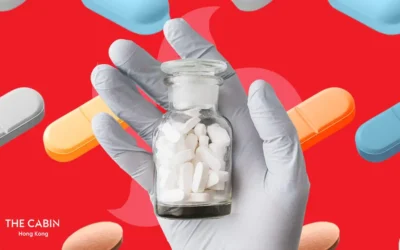Being the partner of someone with an addiction is challenging, and it can be especially difficult to navigate your role in the relationship. Find out why partners of addicted people tend to enable, and how you can start supporting instead.

Sharelines
Being a partner to someone struggling with an addiction is difficult. Most of the time, people are unaware that they are actually enabling an addiction and confuse it with simply trying to help their partner. It is true that partners can be a valuable part of recovery – but how does this work?
First, let us take a look at what enabling addiction looks like.
Signs of Enabling Addiction
Enabling occurs when you mitigate the consequences of addiction for your loved one. Examples of typical enabling behaviour are:
- Giving your partner money
- Avoiding talking about the addiction with your partner
- ‘Bailing’ them out of situations their addiction leads them to, such as:
- Paying their bills
- Calling in sick for their job because they were unable to go due to substance abuse
- Bailing them out of jail
- Making empty threats about ending the relationship
How Enabling an Addict does more Harm than Good
Both enabling and supporting begin with good intentions. Though enabling is often well-intentioned, it can actually worsen or prolong an addiction.
Why is this?
Enabling effectively does not help anyone in the situation, but instead helps the addiction prevail. In order for people to seek treatment, they need to experience the full consequences of their addiction. Feeling the negative impacts of one’s addiction can be a powerful motivator to change.
If a person with addiction is in a relationship with an enabler, they cannot see the complete picture of their addiction. Instead, their enabling partner mitigates its negative consequences, which may prevent the individual from reaching a point where they decide to get treatment.
For example, if you are paying your addicted partner’s bills so their electricity does not get shut off, they will never feel the negative impact of putting all of their money towards drugs or alcohol. In addition, if you make threats about leaving the relationship if the addictive behaviour continues but never actually follow through, then your partner never feels the sting of losing an important relationship to their addiction.
Discuss how to help your loved one with an addiction expert
Why People Enable Addicted Partners
When we see a loved one suffering our first instinct is, or at least should be, to help them. This is where enabling behaviour stems from. However, beneath that surface of simply trying to help someone we care about, there is more to it.
Enabling is a form of co-dependency, meaning your self-esteem is tied to helping your addicted partner in ways that are not in your best interest. Enabling behaviour has a lot to do with fear and an attempt to control what seems like an out-of-control situation, and is a way of mitigating the consequences of your partner’s addiction on yourself.
The biggest reason we enable is to lessen our own negative emotions of anxiety and fear. If we pay an addicted partner’s rent, then we do not have to worry about them being on the street. We to continue the relationship though it is unhealthy, because then we can at least keep an eye on them. When we do these things, our own anxiety is relieved temporarily.
Especially in the case of being in a romantic relationship with a partner where finances are sometimes tied together, consequences for your partner can mean consequences for you. People enable in order to ease their own conscience or to ease the impact of addiction on their lives.
How to Truly Support Someone with Addiction
Enabling behaviour comes from a place of wanting to provide support, but not knowing how to properly achieve that. Support someone with an addiction is complicated and requires education and support for partners trying to do so. Here are some essential steps to transition behaviour from enabling to supporting:
- The first step to become aware of the ways in which you have been trying to lessen the consequences of the addiction.
- Once you have done this, come up with a clear list of boundaries regarding your partner’s addictive behaviour and your relationship.
- Then, you will need to communicate this all with your partner—both the ways that you have been enabling and the boundaries you are drawing.
It is possible to love someone with an addiction without enabling their behaviour. Understand that millions of people recover from addiction every year, and there is hope. The best action you can take to help your partner toward recovery is to stop enabling the addiction.
Coping with your Partner’s Addiction and Taking Care of Yourself
Addiction not only affects the addicted individual, but has a significant impact on their loved ones. As a partner or spouse to a person struggling with an addiction, you also require immense support. Many times, supporting a loved one through addiction takes all your emotional energy and effort. It may take time to rebuild trust broken by an addiction.
Addiction is a chronic and progressive disease, and more often than not, requires professional help to overcome. Seek support from friends and family, and seek addiction treatment for your partner and yourself.
Finding Effective Treatment for your Partner’s Addiction
If your partner is struggling with addiction, there is hope – effective treatment is available for a wide range of addictions. At The Cabin Hong Kong we house clinical professionals who are trained in both the psychological and biological aspects of addiction. Our programs have a higher than average, 96% success rate in seeing people through to recovery. If you know someone who is struggling with an addiction, contact us today to see how we can help.



